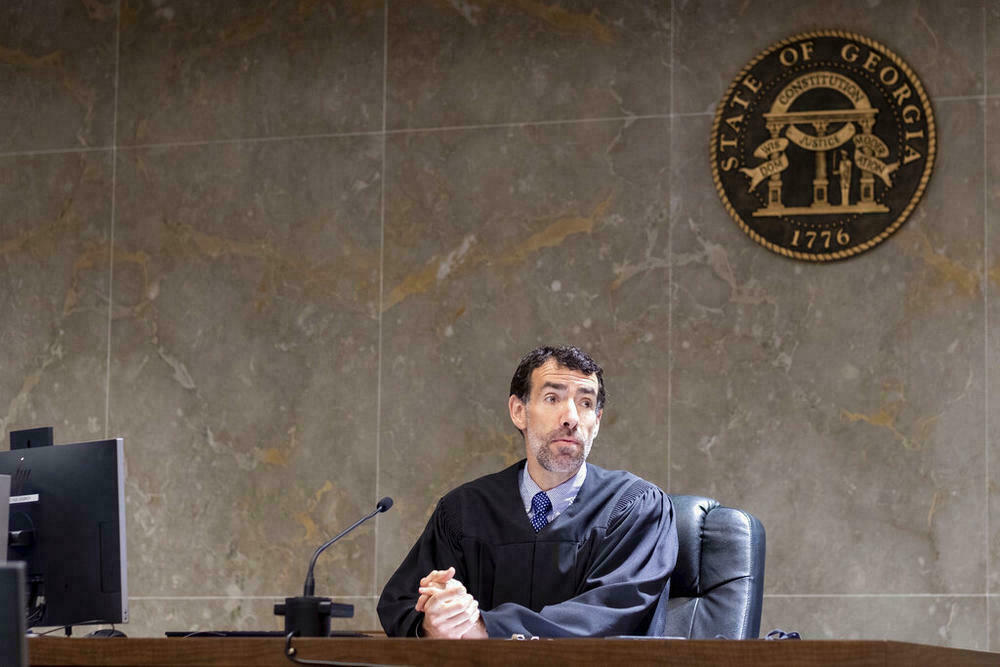Atlanta (Fulton County) District Attorney Fani Willis formed a Special Grand Jury to consider possible criminal charges against unspecified individuals in conjunction with efforts to overturn the 2020 presidential election results in Georgia. Fulton County Judge Robert McBurney recently released a portion of the Grand Jury’s report.
There were two revelations. First, that the Grand Jury unanimously declared that there was no evidence of sufficient vote fraud to overturn the election in the Peach State, but there was sufficient evidence for Willis to file formal criminal perjury charges against “one or more” of those who testified before the Grand Jury.
The Special Grand Jury did not issue indictments – as one might have expected – because a “special” grand jury cannot indict. In a previous commentary, I questioned why Willis called for a Special Grand Jury.
We do not know who the individual or individuals may be, so this commentary focuses on the judge’s decision to release that partial information. Personally, I would call it judicial malpractice.
The deliberations of grand juries are supposed to remain secret until an official, and complete finding is made public. It is a crime to reveal any information regarding the deliberations. That includes the jurors, the prosecutors, and the witnesses. They are not supposed to reveal the names of the targets of the investigation or the testimony of witnesses – although that is almost impossible to conceal in high-visibility cases. Witnesses are allowed to make public their own participation but not the testimony itself.
Even when a grand jury makes its report, the names of peripheral individuals are often replaced with “Witness A” or “Person B” – as we have seen in many criminal filings. The reason for the secrecy is to avoid the appearance of wrongdoing by persons not being accused or indicted. It is to avoid false accusations in the court-of-public-opinion.
Of course, the privacy of grand juries is routinely violated. Testimony is leaked to the media without legal consequences. It is just another case in which the law is rarely enforced.
The information that McBurney released serves no good or essential public purpose. It violates the spirit if not the law, and actually creates unnecessary biased speculation in the media – the court-of-public-opinion.
Since the case involved the actions of President Trump, his aides, and supporters, the release of the partial report set off a whirlwind of baseless speculation. Was Trump among those recommended for indictment? What about former White House Chief of Staff Mark Meadows? Rudy Giuliani? Was perjury the only criminal recommendation? If so, then Trump is off the hook since he never testified.
North Carolina Senator Lindsey Graham was asked by reporters if he was worried about being indicted for perjury. He said he was not. It is a question that never needed to be asked except for McBurney’s release of partial information.
The major speculation was about Trump, of course. Since he was never subpoenaed or even invited to testify, his lawyers suggest that was a sign he was not a target. That is one way to look at it, but targets are not always brought in to testify. The Grand Jury may have a recommendation regarding Trump. Who knows? So, it is all empty speculation.
There is also another step in the process. Based on what the judge revealed, it will be up to Willis to decide whether to prosecute based on the Grand Jury’s recommendations. That is not a slam-dunk in this case. She has to independently determine if the evidence is sufficient to file charges AND get convictions. Those decisions can be debated in the public arena based on reality – not speculation based on vague hints, as the Judge created.
Remember, the information revealed by McBurney said that “a majority” of the grand jurors recommended criminal indictments against some nameless individual or individuals. That means that some jurors did not see criminal perjury – and that suggests that the cases may not be very strong.
What we do not know is critical. What was the majority – 51 percent or 99 percent? That makes a huge difference. And if there are multiple recommendations, what were the percentages in each case?
Those decisions can be debated based on reality – not speculation based on vague hints.
All this speculation based political biases being applied to minimal information was unnecessary. Even worse, it is corrosive to honest public discourse. It creates misinformation and disinformation.
In my opinion, this is a situation in with the judicial profession should give Judge McBurney more than a slap on the wrist. Of course, nothing will happen because we do not live under the rule-of-law, we live under the rule-of-judges.
So, there ‘tis.
